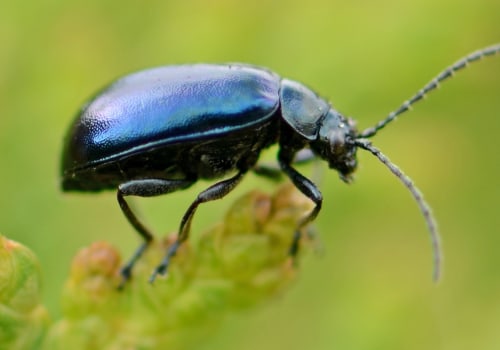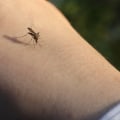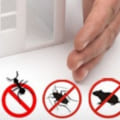Pest control is a critical part of maintaining a healthy home or business environment, but knowing when to implement pest control measures can be challenging. Pests such as rodents, insects, and other unwanted creatures can invade at any time, causing damage to property, spreading diseases, and disrupting daily life. However, understanding when to call in professional pest control services or take preventive measures is essential to managing infestations effectively. Whether you are dealing with seasonal pests, signs of an infestation, or want to establish a year-round prevention plan, timing is key. This article will explore the best times to carry out pest control, the warning signs that indicate immediate action is needed, and how seasonal changes can affect pest activity.
Seasonal Pest Control
One of the most common strategies for pest control is to schedule treatments based on the changing seasons. Different pests are more active at certain times of the year, and addressing potential issues before they become serious can help prevent full-blown infestations. For example, spring and summer are prime times for pests like ants, mosquitoes, and wasps, as they become more active with the warmer temperatures. During these months, it is crucial to inspect your home or property for any signs of nests or hives, particularly in attics, garages, and outdoor spaces. Professional pest control can target these early signs and prevent populations from growing.
In the fall, rodents like mice and rats begin seeking shelter indoors as the temperatures drop. Fall is an ideal time for pest control treatments aimed at sealing entry points, removing food sources, and laying traps to stop rodents from taking up residence inside homes. Preventive measures during this time can save homeowners from dealing with full-blown infestations during the colder months. Winter can also be a time to focus on pests that have made their way indoors, such as spiders or cockroaches, which thrive in warm, protected environments.
Pest control in the spring can also target the emergence of termites. These wood-destroying insects swarm during the spring months, making it the perfect time to inspect your home for signs of infestation. Addressing the problem early in the season can prevent severe structural damage to your home.
When You See Signs of Infestation
One of the clearest indications that it’s time to call for pest control is when you start noticing signs of an infestation. Pests often leave behind clues long before they become a visible problem, and catching these signs early can prevent further damage. For instance, if you notice droppings, strange odors, gnaw marks, or damaged food packaging, it’s likely that rodents or other pests have already entered your home. Insects like ants may leave behind visible trails, while termites often create hollow-sounding wood, mud tubes, or wings near windows and doors.
It’s essential to be vigilant when it comes to these warning signs, as pests reproduce quickly, and a small issue can escalate into a major problem in no time. Ignoring the signs or delaying treatment can lead to property damage, contamination of food supplies, and potential health risks for you and your family. Immediate pest control action is crucial when these signs are present to stop the infestation from spreading.
During Home Renovations or Repairs
Another important time to consider pest control is during home renovations or repairs. Construction work can often disturb pest habitats, causing them to relocate within your home or into new areas. For example, if you’re adding an extension to your home or tearing down walls, you may uncover nests of rodents, insects, or termites. Addressing pest control during these projects ensures that any pests displaced by the construction are dealt with immediately, preventing them from spreading to other parts of your home.
Additionally, renovations present a perfect opportunity to inspect your home for vulnerabilities that pests can exploit. Cracks in the foundation, gaps in walls, and poorly sealed windows or doors are all potential entry points for pests. During the renovation process, sealing these gaps and implementing preventive pest control measures can help protect your home in the long term.
Preventive Pest Control
In addition to responding to immediate pest problems, many homeowners choose to implement preventive pest control measures throughout the year. Preventive pest control focuses on keeping pests out before they can become a problem. This might include regular inspections, applying pest control treatments to the exterior of your home, and addressing potential entry points such as gaps around doors, windows, or cracks in the foundation.
Preventive measures can be especially effective when combined with seasonal treatments. For example, applying a perimeter treatment around the home in the spring and fall can help keep ants, termites, and other pests at bay. Preventive pest control is also ideal for businesses, where a pest infestation can lead to significant financial losses or health code violations. Regular maintenance treatments and inspections can help keep the premises pest-free and ensure compliance with health and safety standards.
After Severe Weather Events
Pest control is also crucial after severe weather events like storms, floods, or droughts. These events can disrupt the natural habitats of pests, forcing them to seek shelter in human homes or businesses. For instance, after heavy rainfall, mosquitoes may breed in standing water, leading to an increase in their population. Likewise, flooding can cause rodents or insects to move into homes, searching for dry, safe spaces.
Droughts can also drive pests indoors as they seek water sources that may be scarce outside. After severe weather, it’s important to inspect your home for any new signs of pest activity and consider professional pest control treatments to prevent infestations from taking hold.
Conclusion
Knowing when to implement pest control is essential to maintaining a pest-free home or business. Whether it’s taking preventive measures during specific seasons, responding to signs of an infestation, or addressing potential pest problems during renovations or after severe weather, the timing of pest control treatments can make all the difference. Seasonal pests, such as ants or termites, often require targeted control efforts at particular times of the year, while routine inspections and maintenance can help prevent infestations before they start. By staying proactive and vigilant, homeowners and businesses can ensure a healthy, safe, and pest-free environment year-round.







